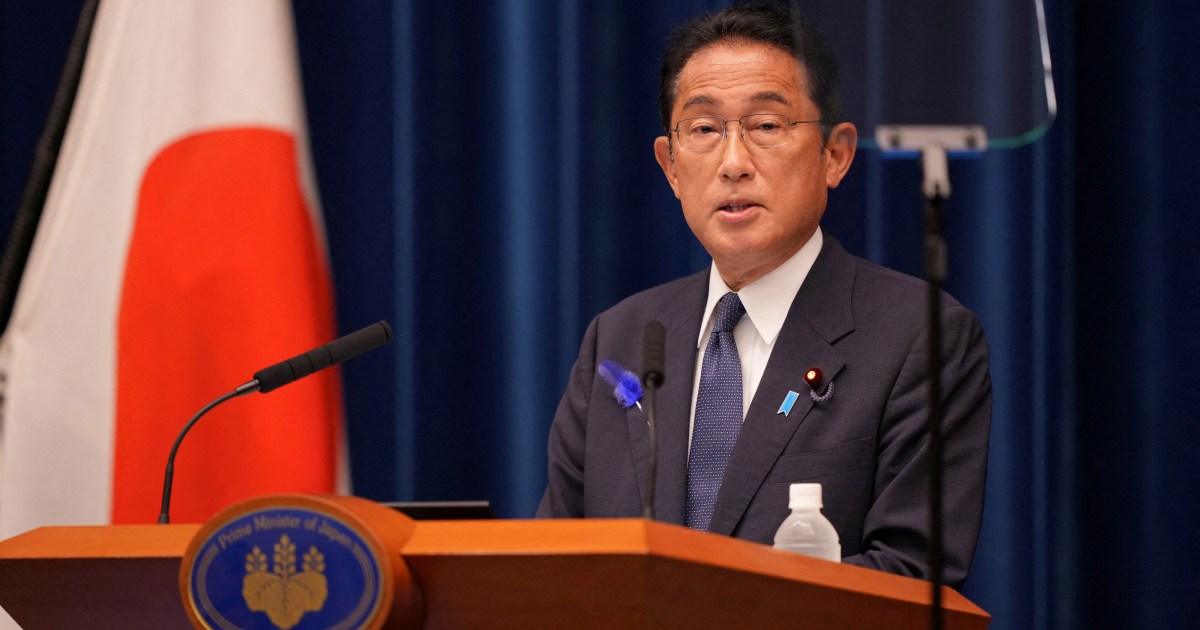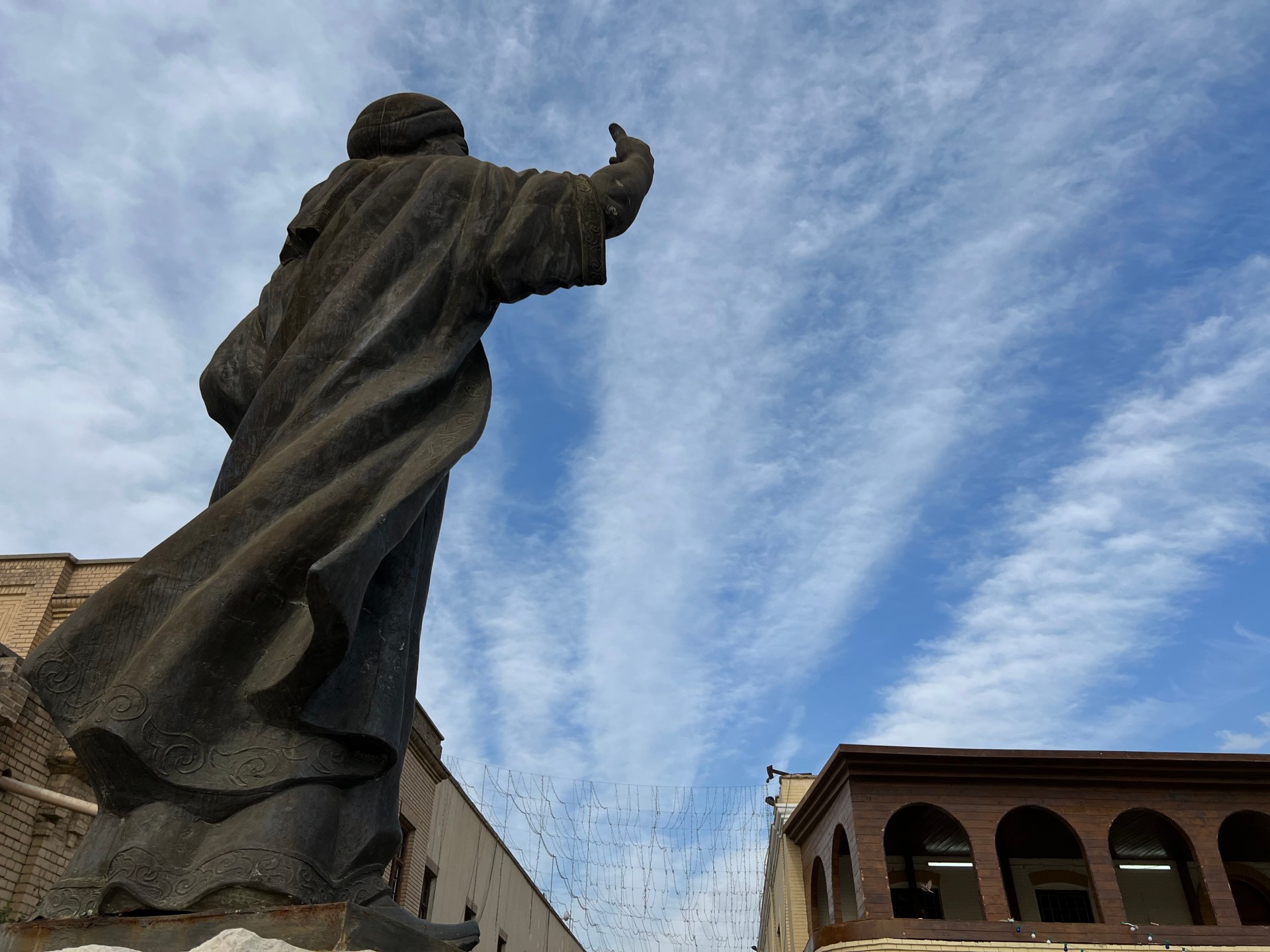Japan PM blames inadequate police protection for Abe killing | News
Fumio Kishida says Japan will hold a state funeral for the slain former prime minister in autumn.
Japanese Prime Minister Fumio Kishida has blamed inadequate police security for the death of former leader Shinzo Abe, who was shot while giving an outdoor campaign speech.
Abe, one of Japan’s most influential politicians, was assassinated on July 8 in the city of Nara, shocking a nation known for its low crime rate.
Photos and videos of the shooting show the attacker was able to come close to Abe.
Kishida said officials at the National Public Safety Commission and National Police Agency were investigating what went wrong and would come up with measures.
“I urge them to fix what needs to be fixed, while also studying examples in other countries,” he said.
The suspect, 41-year-old Tetsuya Yamagami. was arrested immediately and is being questioned in custody. Police and media reports say he told investigators that a rumoured link between Abe and a religious group the suspect hated was the reason he shot him.
Paying tribute to Abe, Kishida said Japan’s longest-serving prime minister had “many great legacies to his name across a wide variety of issues.
“This includes taking on the heavy responsibility of being premier for our country with outstanding leadership and action over the course of eight years and eight months – the longest in modern history – when in the midst of domestic and global tension.”
Kishida said Japan would hold a state funeral for Abe in the autumn. A smaller funeral ceremony was held at a temple in Tokyo on Tuesday, The last state funeral for a former prime minister was for Shigeru Yoshida in 1967.
COVID ‘spreading throughout’
Separately, Kishida warned that a new wave of COVID-19 infections appeared to be spreading rapidly and called on people to take special care before an approaching long weekend and school summer vacations.
“The coronavirus is spreading throughout the nation and through all age groups,” he said, urging people to make sure they got their booster shots, especially those in their 20s and 30s, whose vaccination rate is lagging.
“With summer vacations coming up, interaction between all generations will be increasing.”
Tokyo’s 16,878 new cases on Wednesday were the highest since February, while the nationwide tally rose above 90,000, in a recent surge of COVID-19 infections to levels unseen since early this year.
Kishida said additional steps included making fourth shots available to a wider range of people and establishing free testing sites at railway stations and airports.
“At this point, the number of seriously ill and deaths are still low. But the number of hospital beds in use, although low at this point, is on the rise,” Kishida said.
But he added that no restrictions on movement were needed yet and he had no immediate plans to tighten border controls above the current level, which – with tourists limited to small group tours – remain among the strictest in the world.
Some experts have warned that cases could rise sharply over the next few weeks.
The Japanese capital, Tokyo, recorded 16,662 new cases on Thursday. Authorities raised its alert level to the highest tier. The BA.5 subvariant of coronavirus accounts for more than half of the new cases.
“Tomorrow, we will hold a meeting … to decide on measures to be taken this summer,” Tokyo Governor Yuriko Koike told a meeting earlier on Thursday, adding that the gathering would weigh expert opinion and the nationwide trend.





Pingback: orange hawaiian mushroom for sale magic boom bars where to buy psilocybin capsules for sale
Pingback: find this
Pingback: LinkedIn
Pingback: ห้องพักรายวัน รามอินทรา
Pingback: http://rotomation.com/3dcontentcentral/download.php?url=https://gasdank.com/